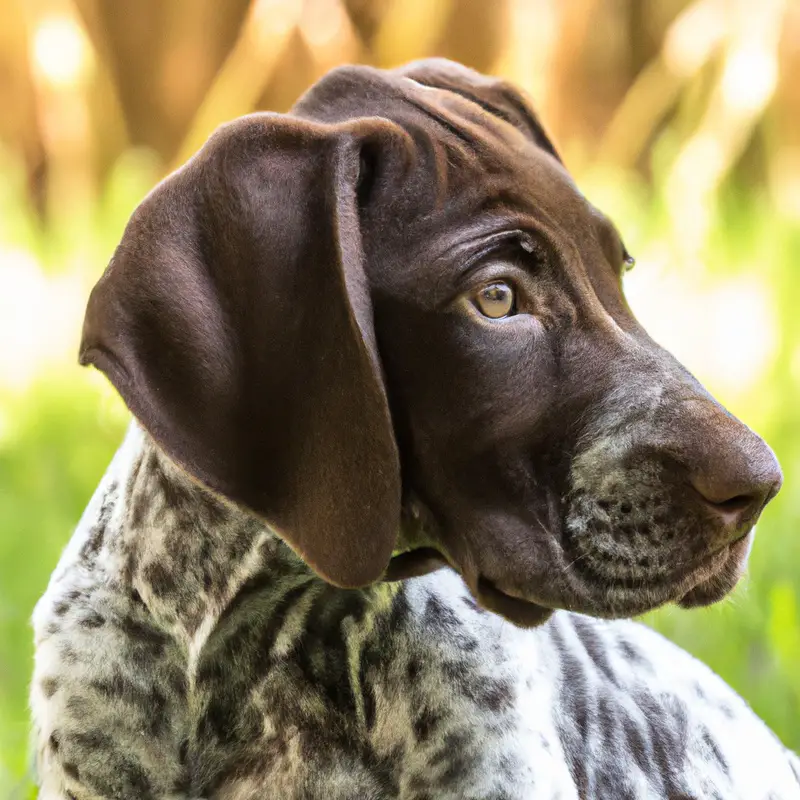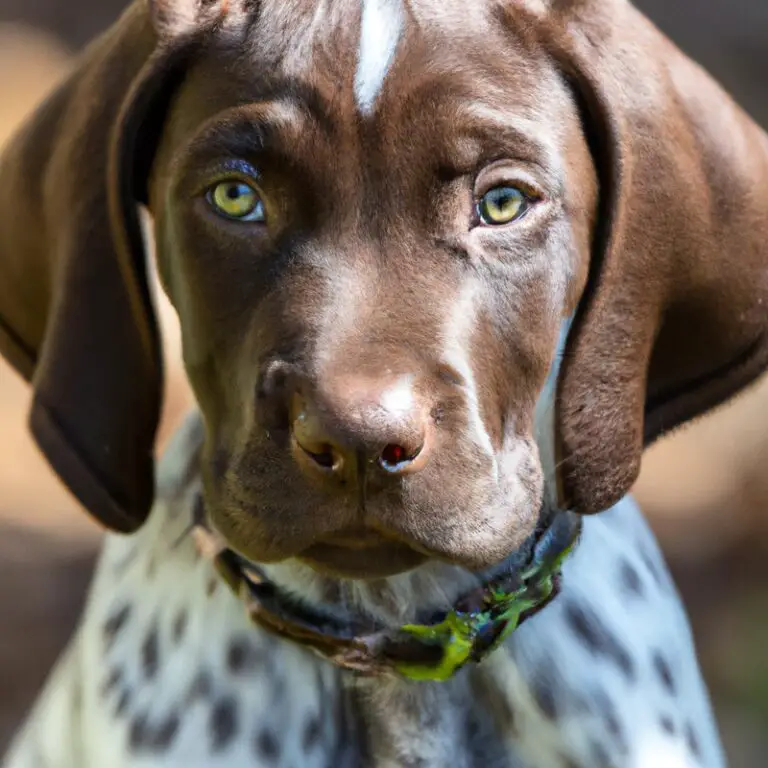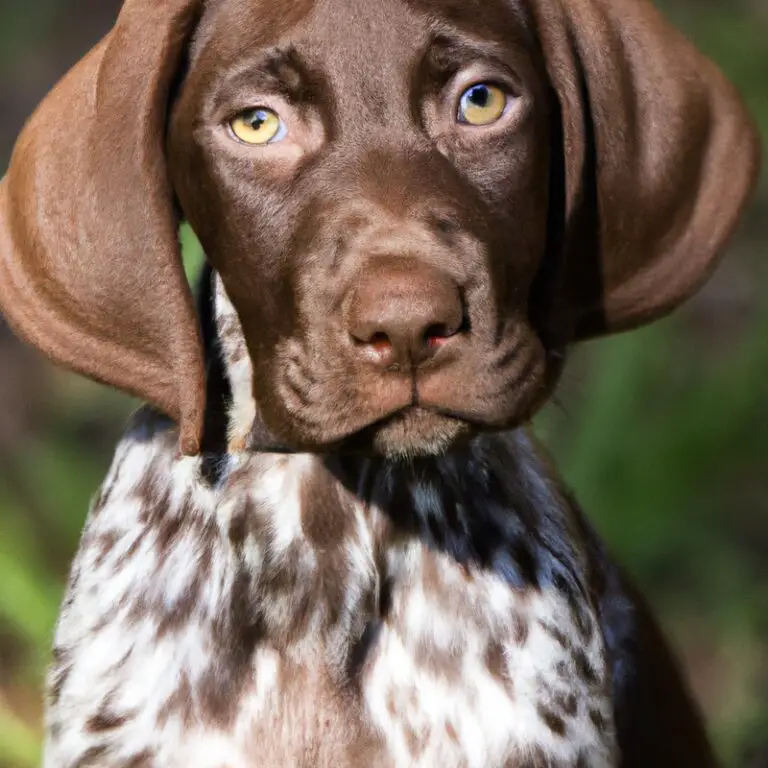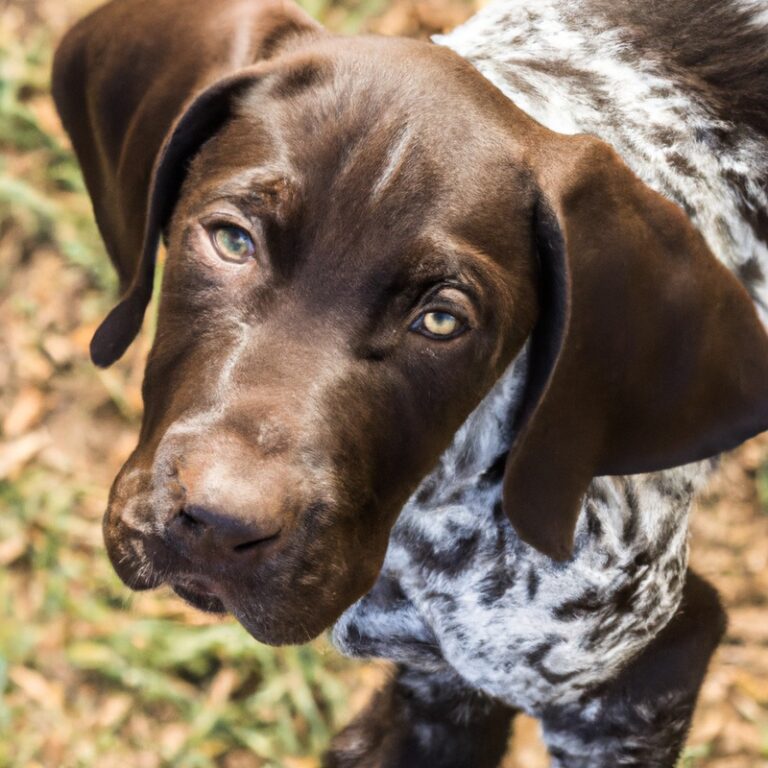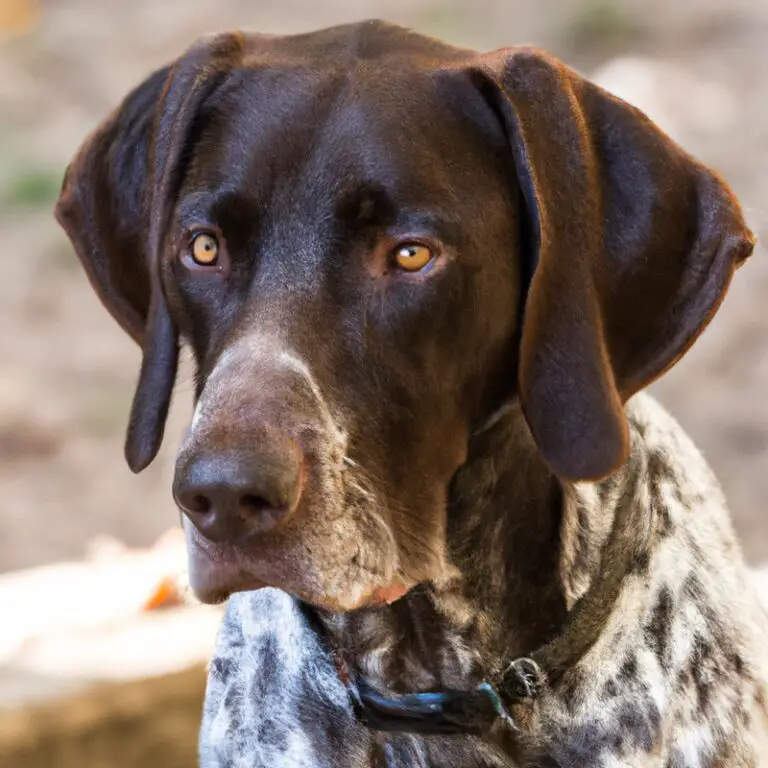How Do I Prevent My German Shorthaired Pointer From Getting Into The Trash Or Garbage?
Key Takeaways:
- Consistent training and positive reinforcement can help prevent a German Shorthaired Pointer from accessing the trash.
- Providing mental and physical stimulation for your dog can reduce their inclination to seek out the garbage.
- Investing in trash cans with secure lids or keeping the trash in a location that is inaccessible to your dog can be an effective preventive measure.
- Identifying and addressing any underlying behavioral issues can also help prevent trash-related incidents.
Are you tired of coming home to a kitchen covered in trash, thanks to your mischievous and curious German Shorthaired Pointer? Trust me, I know the frustration of trying to keep these troublemakers out of the garbage.
But fear not! As a seasoned expert in dog training and behavior, I’ve got you covered.
In this article, I’ll share effective techniques and strategies to prevent your German Shorthaired Pointer from getting into the trash. From basic obedience training to managing their environment and providing alternatives, we’ll explore a range of solutions to keep your furry friend on their best behavior.
So let’s jump right in and put an end to the trash diving chaos together!
| Methods | Pros | Cons |
| 1. Securing the trash can with a lid | – Effectively prevents access to garbage – Keeps the house clean and prevents messes – Easy to implement |
– Requires purchasing a trash can with a secure lid – Some dogs may figure out how to open certain types of lids |
| 2. Using a baby gate or barrier | – Restricts access to the trash area – Can be used as a training tool to teach the dog boundaries – Relatively cost-effective |
– Requires setting up and maintaining the barrier – May not be suitable for all household layouts or configurations |
| 3. Training and behavior modification | – Helps teach the dog appropriate behavior – Provides mental stimulation and strengthens the bond – Long-term solution |
– Requires time, patience, and consistent training – Some dogs may still be tempted by the trash |
| 4. Removing temptation | – Properly disposing of trash and food waste – Keeping the dog’s environment clean and free of food scraps |
– Requires conscious effort and awareness – May not completely eliminate the possibility of trash digging |
Understanding the Problem
Why do German Shorthaired Pointers get into the trash?
German Shorthaired Pointers have a natural instinct to hunt and scavenge. This can lead them to explore and get into the trash, as it may contain interesting smells and potential food scraps.
Additionally, they may find the act of rummaging through the trash to be rewarding or reinforcing, which encourages them to repeat the behavior.
It’s important to understand that this behavior is driven by instinct, curiosity, and potential rewards rather than a deliberate attempt to misbehave. By managing their environment and providing alternative outlets for their hunting instincts, you can help prevent this behavior.
The dangers of trash diving for German Shorthaired Pointers
Trash diving can pose serious dangers to German Shorthaired Pointers. These curious and active dogs may be tempted to explore the trash can or garbage in search of food or interesting smells.
However, there are several risks associated with this behavior.
First and foremost, eating spoiled food or ingesting harmful substances can lead to gastrointestinal issues like vomiting or diarrhea. Additionally, certain items in the trash, such as sharp objects or bones, can cause injuries to their mouth, throat, or digestive system if swallowed.
Another danger is the potential presence of toxic substances, like cleaning chemicals or spoiled food, which can be harmful if consumed.
These substances can lead to poisoning, resulting in sickness or even organ damage. Furthermore, trash diving increases the risk of your German Shorthaired Pointer encountering parasites, such as worms or bacteria, which can negatively impact their health.
To protect your furry friend from these dangers, it’s important to keep trash cans securely closed or stored in a location that is inaccessible to your dog.
Additionally, providing your dog with mental and physical stimulation, along with a balanced diet, can help reduce their urge to search for food in the trash.
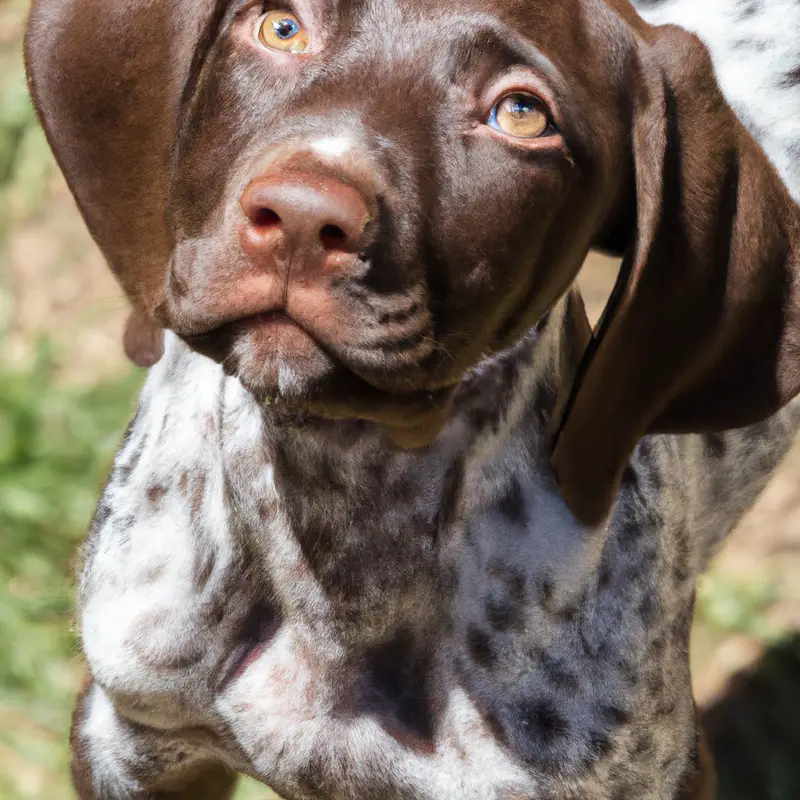
Training Techniques
Basic obedience training
Basic obedience training is essential for preventing your German Shorthaired Pointer from getting into the trash or garbage. Here are some tips to help you with this crucial aspect of training:
- Start with the basics: Teach your dog commands like “sit,” “stay,” “come,” and “leave it.” These commands will help you gain control over your dog’s behavior.
- Use positive reinforcement: Reward your dog with treats, praise, or playtime whenever they obey a command. This positive reinforcement helps them understand what is expected of them and motivates them to listen to you.
- Be consistent: Consistency is key in training. Use the same command and hand signals every time and reinforce the training regularly. This will create a routine and make it easier for your dog to understand and follow instructions.
- Practice in different environments: Gradually introduce distractions into your training sessions. Start training in a controlled environment and then slowly move to more challenging settings. This will help your dog generalize their training to various situations.
- Seek professional help if needed: If you’re struggling with training, don’t hesitate to consult a professional dog trainer. They can provide guidance, personalized techniques, and address any specific issues you may be facing.
Teaching the “leave it” command
Teaching your dog the “leave it” command is an essential way to prevent them from getting into the trash or garbage. Here’s how you can effectively teach this command to your German Shorthaired Pointer:
- Start with a treat: Hold a treat in your hand and show it to your dog. Close your hand and let them sniff and lick it. Say “leave it” in a firm but gentle tone.
- Wait for the response: Your dog may try to paw or nudge your hand to get the treat. Be patient and wait for a moment when they hesitate or back away even slightly. Immediately praise and reward them with a different treat.
- Repeat and reinforce: Practice this exercise multiple times a day, gradually increasing the difficulty level. You can place the treat on the floor or table, and only reward your dog when they refrain from taking it upon hearing the command.
Remember to always use positive reinforcement techniques and be consistent in your training. This will help your German Shorthaired Pointer understand and obey the “leave it” command, ultimately keeping them away from the trash or garbage.

Using positive reinforcement techniques
Using positive reinforcement techniques is key to preventing your German Shorthaired Pointer from getting into the trash or garbage. First and foremost, it’s important to understand that positive reinforcement involves rewarding good behavior rather than punishing bad behavior.
One effective technique is to provide your dog with plenty of mental and physical stimulation to keep them occupied and prevent boredom.
This can include regular exercise, puzzle toys, and interactive play sessions. When you catch your dog showing good behavior, such as ignoring the trash or garbage, be sure to reward them with praise, treats, or a favorite toy.
This positive reinforcement reinforces the idea that avoiding the trash or garbage is a desirable behavior.
Consistency is also crucial. Be consistent in your training and in rewarding good behavior.
Make sure everyone in your household is on the same page and follows the same positive reinforcement techniques.
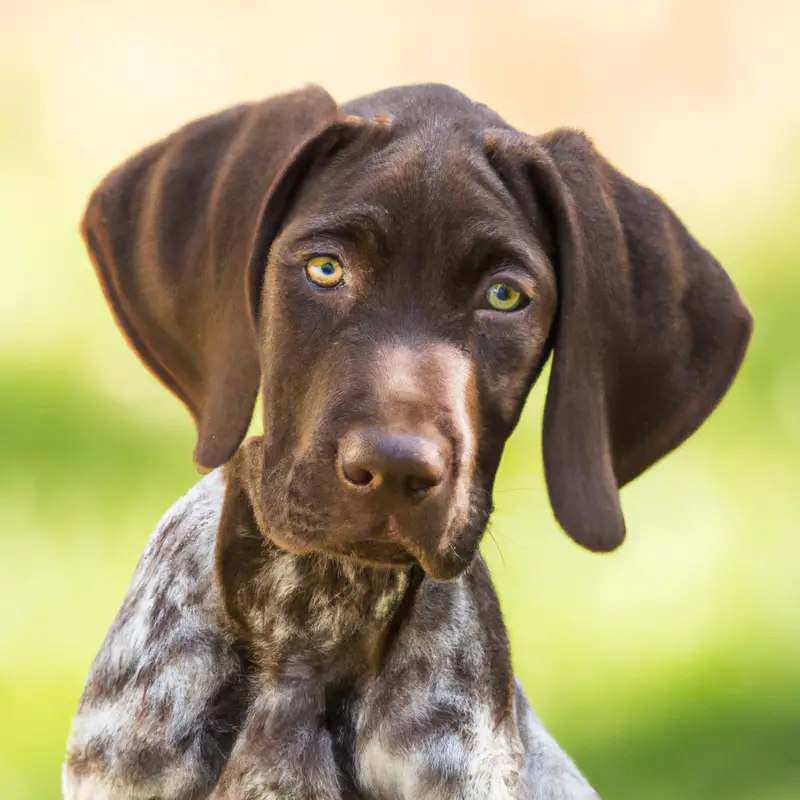
Managing Environment
Secure trash cans and bins
When it comes to preventing your German Shorthaired Pointer from getting into the trash or garbage, securing your trash cans and bins is a crucial aspect. First and foremost, make sure your trash cans have sturdy lids that can be securely fastened.
This will make it difficult for your pup to open them.
Additionally, consider using trash cans with locking mechanisms or heavy-duty bins that can’t be easily tipped over. By securing your trash cans and bins, you’ll help keep your curious furry friend out of the trash and prevent any potential mess or health hazards.
Restricting access to the kitchen or trash area
Restricting access to the kitchen or trash area is an important step in preventing your German Shorthaired Pointer from getting into the garbage. First and foremost, make sure to keep all trash cans securely covered with lids that your dog can’t easily open.
You can also use baby gates or pet barriers to block off access to the kitchen or trash area.
Another option is to keep your dog confined to a different room or area of the house when you’re not able to supervise them.
Using deterrents and repellents
Well, friend, if you’re dealing with a German Shorthaired Pointer who just can’t resist the allure of trash, deterrents and repellents may be your saving grace. Here’s the scoop on using them.
- Keep your trash cans secure: Start by finding trash cans with secure lids or invest in ones that have locking mechanisms. This can make it much harder for your pup to get inside and satisfy their love for garbage.
- Try unpleasant scents: Dogs generally dislike strong or unpleasant scents. So, you can try spraying the trash cans or bags with a scent that they find off-putting, like citrus or vinegar. Just make sure it’s safe for them and won’t harm the environment.
- Consider motion-activated devices: Another option is using motion-activated devices that emit a sound or spray of air when your dog gets near the trash. This can startle them and deter them from going any further.
- Use bitter deterrents: Dogs tend to dislike bitter tastes. You can try applying a bitter deterrent spray on top of the trash cans or even on the bags themselves. This may discourage your pup from rummaging through the trash.
Providing Alternatives
Ensuring sufficient exercise and mental stimulation
Ensuring sufficient exercise and mental stimulation for your German Shorthaired Pointer is key to preventing them from getting into the trash or garbage. First and foremost, make sure your furry friend gets plenty of physical activity.
This breed is known for its high energy levels, so daily walks, runs, or play sessions are crucial.
Engage in activities like playing fetch or going for hikes to keep them moving and burn off excess energy. In addition to physical exercise, mental stimulation is equally important.
German Shorthaired Pointers are intelligent dogs and need mental challenges to stay happy and content.
Incorporate activities like puzzle toys, scent training, or obedience training sessions into their routine. These mental exercises will help tire them out and keep their minds sharp.
Offering interactive toys and puzzles for distraction
Offering interactive toys and puzzles can be a great way to distract your German Shorthaired Pointer from getting into the trash or garbage. Dogs can become curious and bored easily, so providing them with engaging toys and puzzles can redirect their attention and keep them occupied.
Look for toys that are specifically designed to stimulate their minds and challenge them mentally.
Interactive toys, such as treat-dispensing toys or puzzle toys, can keep your dog entertained and mentally stimulated, reducing the likelihood of them wandering over to the trash or garbage.
Providing appropriate chewing and foraging options
When it comes to preventing your German Shorthaired Pointer from getting into the trash or garbage, providing appropriate chewing and foraging options is a crucial aspect. First and foremost, make sure your dog has plenty of safe and durable chew toys.
This will redirect their chewing behavior away from the trash and onto something more suitable.
Additionally, you can provide interactive toys and puzzles that require your dog to forage for treats or food. This mental stimulation can help satisfy their natural instinct to forage and keep them entertained, reducing the likelihood of them rummaging through the garbage.
Consistency and Supervision
The importance of consistency in training
Consistency is key when it comes to training your German Shorthaired Pointer. Training should be a regular part of your routine, not just a one-time thing.
By being consistent, you establish clear expectations for your dog and help them understand what behavior is expected from them.
This means that if you don’t want your dog to get into the trash or garbage, you need to consistently reinforce this rule. A consistent approach will give your dog the structure they need to learn and follow commands effectively.
It may take time, but with consistency, you can prevent your German Shorthaired Pointer from getting into the trash or garbage.
Supervising your German Shorthaired Pointer in the trash area
Supervising your German Shorthaired Pointer in the trash area is crucial to prevent them from getting into unwanted mischief. First and foremost, always keep an eye on your dog whenever they are near the trash.
This means not leaving them unsupervised in the same space as the garbage.
Consider placing a baby gate or a closed door between your dog and the trash when you’re unable to supervise directly. This provides a physical barrier and limits access.
Additionally, you can use a trash can with a secure lid or keep the trash in a cabinet that your dog cannot open.
Regularly empty and clean your trash cans to eliminate enticing smells that might attract your pup.
Using crates or safe confinement when unsupervised
Using crates or safe confinement when unsupervised is an effective way to prevent your German Shorthaired Pointer from getting into the trash or garbage. Crates provide a secure and enclosed space for your dog when you are unable to supervise them.
Make sure to choose a crate that is the right size for your dog, allowing them to stand up, turn around, and lie down comfortably.
You can also use baby gates to confine your dog to a safe area of the house, such as a laundry room or kitchen, where they won’t have access to the trash. Remember to provide your dog with plenty of mental and physical stimulation before confining them to help prevent boredom and anxiety.
Seeking Professional Help
Consulting a professional dog trainer or behaviorist
Consulting a professional dog trainer or behaviorist is a great way to address your German Shorthaired Pointer’s trash-digging behavior. These experts have the knowledge and experience to help you understand the underlying causes of this behavior and devise a customized plan to prevent it.
They can teach you techniques to redirect your dog’s attention, provide mental and physical stimulation, and reinforce good behaviors.
A professional trainer or behaviorist can also help you establish a consistent routine and teach your dog commands that will aid in managing their behavior around the trash.
Identifying underlying issues or behavioral problems
To prevent your German Shorthaired Pointer from getting into the trash or garbage, it’s important to identify any underlying issues or behavioral problems that may be driving this behavior. One common underlying issue could be boredom or lack of mental stimulation.
Dogs often resort to exploring the trash when they’re bored or looking for something to do.
Another possible cause could be separation anxiety or a fear of being alone, which leads them to seek comfort or entertainment in the trash. It’s also worth considering if there are any nutritional deficiencies in your dog’s diet that might be driving them to scavenge for food in the trash.
Additionally, if your dog has learned that they’re rewarded with attention or food scraps when they get into the trash, this can reinforce the behavior and make it more difficult to prevent.
By identifying and addressing these underlying issues or behavioral problems, you can take the necessary steps to prevent your German Shorthaired Pointer from getting into the trash or garbage.
Implementing specialized training programs
Implementing specialized training programs is key to preventing your German Shorthaired Pointer from getting into the trash or garbage. First and foremost, consistency is crucial.
Ensure that everyone in your household follows the same training techniques and rules.
Start by teaching your dog basic commands like “sit,” “stay,” and “leave it.” This will establish a foundation of obedience. Next, introduce a “no” or “leave it” command specifically for when your dog approaches the trash.
Practice this command regularly in various scenarios to reinforce the behavior.
Consider using positive reinforcement techniques, such as treats or praise, to reward your dog for good behavior. This will help create a positive association with staying away from the trash.
Incorporate distraction techniques, such as providing your dog with engaging toys or puzzle feeders, to redirect their attention away from the trash.
This will keep them mentally stimulated and less likely to seek out garbage. Remember that training takes time and patience.
Be consistent, stick to the training plan, and reward your dog for their progress.
With specialized training programs, you can help prevent your German Shorthaired Pointer from getting into the trash or garbage.
Final Verdict
Preventing a German Shorthaired Pointer from getting into the trash or garbage requires a combination of training, environment management, and providing alternatives. By focusing on basic obedience training, teaching the “leave it” command, and using positive reinforcement techniques, you can establish boundaries and redirect their attention.
Securing trash cans, restricting access to the kitchen or trash area, and using deterrents are effective in managing the environment.
Providing sufficient exercise, mental stimulation, and appropriate chewing options will help channel their energy. Consistency, supervision, and seeking professional help if needed, will ensure long-term success in preventing trash diving.
Trust in these methods, and you will see positive results in keeping your German Shorthaired Pointer away from the trash.

